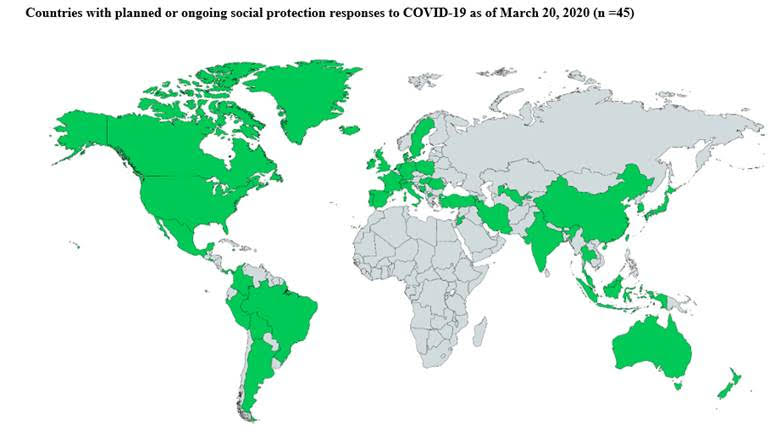Guest post by Jeff Mosenkis of Innovations for Poverty Action. It’s a little tricky to write links when it feels like things are changing hourly. Here’s the main message to keep in mind for the research community – you can do more than idle your projects. COVID-19 will affect every aspect of development, health, education, entrepreneurship, mobile money, cash transfers, political systems and trust in authority. But, if you have a research expertise in some area of development, now’s the time to use it, not in three years to get a good retrospective paper. The advantage we have is that (as far as we know), it hasn’t hit the Southern Hemisphere badly yet, and we still have a shot at slowing or containing it there. The bad news is that, as far as I can tell, research orgs aren’t
Topics:
Jeff Mosenkis (IPA) considers the following as important: academia, coronavirus, covid, COVID-19, development, Economics, health, Kenya, social protection, tavneet suri, UBI, ugo gentilini
This could be interesting, too:
Lars Pålsson Syll writes Schuldenbremse bye bye
Lars Pålsson Syll writes What’s wrong with economics — a primer
Lars Pålsson Syll writes Krigskeynesianismens återkomst
Lars Pålsson Syll writes Finding Eigenvalues and Eigenvectors (student stuff)

Guest post by Jeff Mosenkis of Innovations for Poverty Action.
- It’s a little tricky to write links when it feels like things are changing hourly. Here’s the main message to keep in mind for the research community – you can do more than idle your projects. COVID-19 will affect every aspect of development, health, education, entrepreneurship, mobile money, cash transfers, political systems and trust in authority.
But, if you have a research expertise in some area of development, now’s the time to use it, not in three years to get a good retrospective paper. The advantage we have is that (as far as we know), it hasn’t hit the Southern Hemisphere badly yet, and we still have a shot at slowing or containing it there. The bad news is that, as far as I can tell, research orgs aren’t well-positioned to anticipate this. Specifically – grants tied to a specific project are good for getting that project done, but when work is suspended, as the majority of face-to-face research will be (or is already) those research abilities should be redirected to fighting COVID and mitigating its impacts. - Some funders have committed to allowing resources to be redirected, with the Philanthropy Pledge 2020 led by the Ford Foundation, but most of the signatories (last I checked) were domestic U.S. and I haven’t seen as many international ones coalesce in the same way. We do list several leaders here, but the field needs to move faster.
- To that end, IPA’s adapting it’s resources across 22 countries to fight it, and we’ll be doing matchmaking between what countries need, what funders are willing to support, and researchers soon, please reach out to the email addresses there if you can be involved:
- Researchers, implementers, and funders can contact our Peace and Recovery team who’s leading our internal effort [email protected]
- We’re also also exploring partnerships to launch a competitive fund for COVID response research there, if you can help with that email [email protected]
- A crucial mindset for academics will be not “how can I track the effects to write about what happened later” but “what can I do to help mitigate the effects before they happen?” which may be a different type of data work than you’re used to. Departments should also allow enough flexibility to count this kind of work toward advancement as well.
- Tavneet Suri is running a webinar discussing switching the Kenya Universal Basic Income RCT survey to phone interviews, and best practices in phone surveys tomorrow at 9 Eastern
- Dina generously points out cash transfers aren’t just for governments:
- And GiveDirectly is taking donations for low-income Americans likely to be hit by the virus fallout.
- The map at the top comes from Ugo Gentilini, who has done an impressive and fast review of 45 countries’ social protection measures in response to COVID (typically cash transfers). As of his review, all regions of the world were represented, except Africa.
- A consortium of researchers have a behavioral responses to COVID-19 survey in 35 languages to take http://www.covid19-survey.org/
And, if you haven’t seen it – necessity is the mother of invention-
FWIW, I’m seeing the quarantine affect people in different and unexpected ways. I don’t have a solution, but I did talk to someone in Hong Kong, which is about 8 weeks ahead of us, and she said they’d settled into a routine there. So if they’re any guide it’ll be weird for a while, and then we’ll get used to it, but in the meantime, it’s weird for everybody, not just you.
Here’s a live cam of underwater penguins (and without human visitors in the building, Chicago’s aquarium let the penguins out to walk around)
